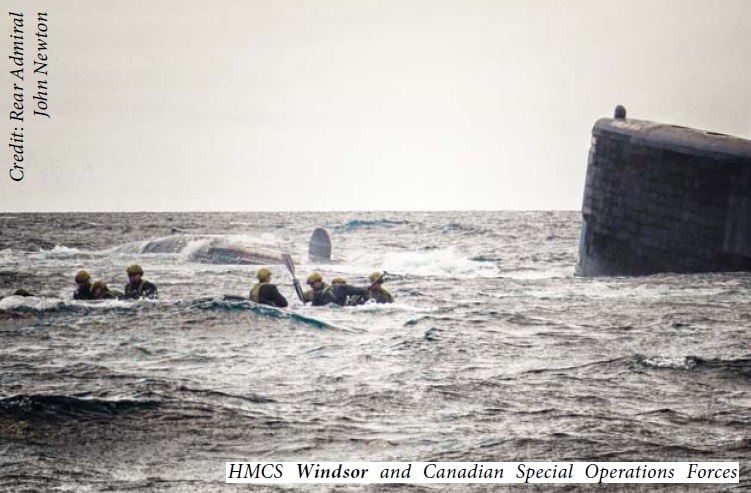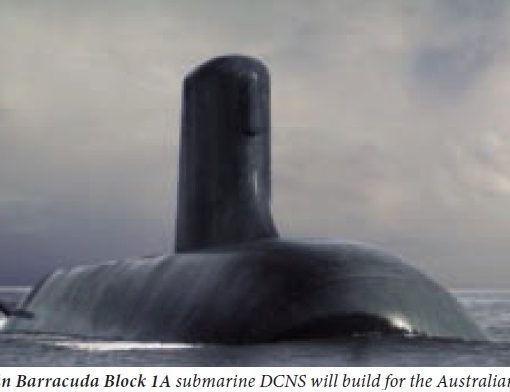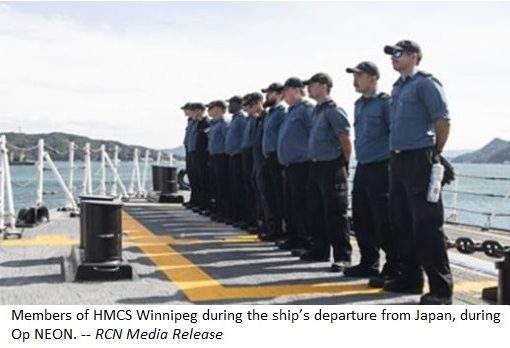Readers of this forum will know my critical position on the report “That Sinking Feeling” by Prof. Michael Byers and Mr. Stewart Webb. After serving as the lead writer for the MSPP Research Team report, published in this forum on 15 June, I wrote a fuller analysis of the Byers-Webb report, which is now available in the summer issue of Canadian Naval Review Vol. 9.2: “A Review of “That Sinking Feeling: Canada’s Submarine Program Springs a Leak.” The article is available free to non-subscribers.
Dr. Paul T. Mitchell of Canadian Forces College has issued his own report entitled “Full of Holes: Byers and Webb on Canada’s Submarine Program.” It is published by Canadian Defence and Foreign Affairs Institute. Dr. Mitchell reaches most of the same analytical conclusions about the Byers-Webb report as the MSPP Research Team and I did in our reports. I want to emphasise that at no time did Dr. Mitchell and I ‘compare notes’ about our research. In fact, I actually had no idea that he was writing his report for CDFAI.
What does it all mean? Mitchell and I, as former colleagues at Canadian Forces College, are thoroughly versed in naval strategy, doctrine and operations planning processes. We have a good understanding of Canadian naval history and the place of submarines within maritime force structure. We both know that the RCN’s submarines have a chequered past and that their current status is in doubt. However, we also both know that there are good and valid reasons for having submarines if the RCN is to remain relevant in global affairs, whether it is within a NATO alliance, coalition or purely national context. These reasons go beyond the “emotional attachment to our weapons” that Byers and Webb claim is the basis of the position.
But, if you review the reader feedback section on almost any electronic news article, the public opinion of submarines, particularly the four Upholder-class boats now known in Canada as the Victoria-class, is almost uniformly negative. They are commonly described as lemons, junk, useless and dangerous. There are so few supporters that their opinions hardly register. Is it possible that Byers and Webb are simply working from the commonly held opinion that there is no value or purpose to submarines in order to solidify a policy opinion for a political purpose? If it were put to a referendum, I have no doubt that submarines would be swiftly dispensed with and few outside of the navy would lament the outcome.
What is needed, in my opinion, is an argument for submarines that will resonate with people who do not have the advantage of years of study in naval strategy, history and operations. So far, I have only come up with one. I published an opinion article in my monthly column “Maritime Horizons” in the June edition of the online journal Marine Matters. Here is the central part of my argument:
The primary role of the RCN in the Second World War was the escort of both merchant and military convoys across the Atlantic Ocean. The warships used by the RCN for anti-submarine warfare were a motley collection of obsolescent destroyers of British and American design plus British emergency designs known as frigates and corvettes. Merchant ships were sunk on both the first and the last days of the war.
The first doctrinal lesson is this: anti-submarine forces cannot be improvised. Before the war broke out, the RCN had only two officers trained in anti-submarine procedures and none of its escorts were equipped with sonar. Not surprisingly, the early performance of the RCN was terrible. The first enemy submarine definitely sunk by the RCN was the Type IXC boat U-501, on 10 September 1941; two years after hostilities began. During that period the RCN lost twelve warships to a variety of causes; five by enemy torpedo. The navy performed so poorly that most of its forces were withdrawn from convoy duty for intensive training just before the climactic period between March and August of 1943. The outcome was essentially decided when they returned.
The other doctrinal lesson is a secondary deduction from the preceding one: the first time a Canadian sailor sees a submarine should not be when a skilled and well-equipped enemy is shooting at him [or her]. The RCN did not have their own submarine and submariners to teach its sailors the intricacies of anti-submarine tactics. While anti-air warfare was largely a mechanical process of pointing and shooting weapons, anti-submarine warfare involved a thinking process of estimation, anticipation and countermovement. It is a professional pursuit that takes years to develop proficiency in and requires leading-edge technology to remain that way. The RCN of that era had none of these things and it showed.
Today, there is a naval arms race underway and submarines are highly sought after by countries that foresee trouble in their waters. There are over 450 submarines in use by about 40 countries in the world. Sales of modern, quiet and deadly submarines are highest to countries along the Pacific and Indian Oceans. The number of submarine-operating navies in the world is climbing steadily.
Canada is a G-8 country. Our government is a leading nation economically and diplomatically. This means that we are prone to participation in multi-national military operations with a UN mandate or with regional coalitions. These can take place anywhere on the globe. If trouble sparks up somewhere and our government chooses to deploy naval forces, it is highly likely that submarines will be part of the issue. To go unprepared into a situation that could contain a submarine threat would be as irresponsible and dangerous as it was during the Second World War when Canadian sailors died frequently and quite needlessly.
So, for me, the choice to purchase the Upholder-class submarines was a simple one: it was those submarines or no submarines. Not having submarines is unacceptable and our history tells us why. Whether they are lemons or not, the RCN must make do with them and use these submarines to maximum advantage. This is vitally important to our sailors, our navy, our county plus our friends and allies abroad. It is a big issue and it is time that people realized what is at stake here: Canada would be making a mistake of strategic proportions if it divests the navy of a submarine force.




